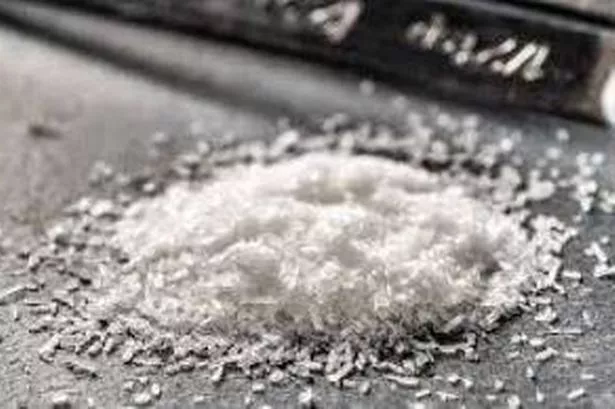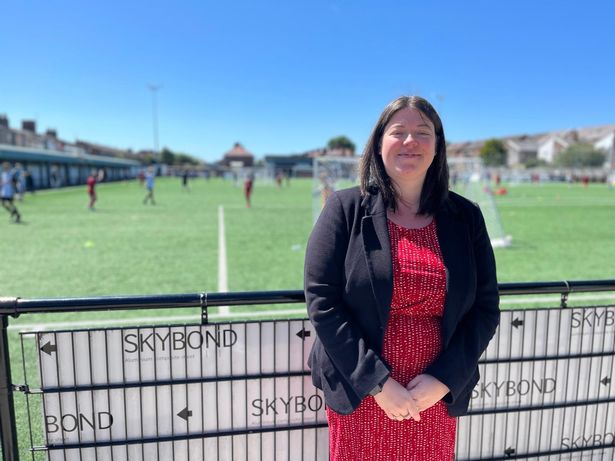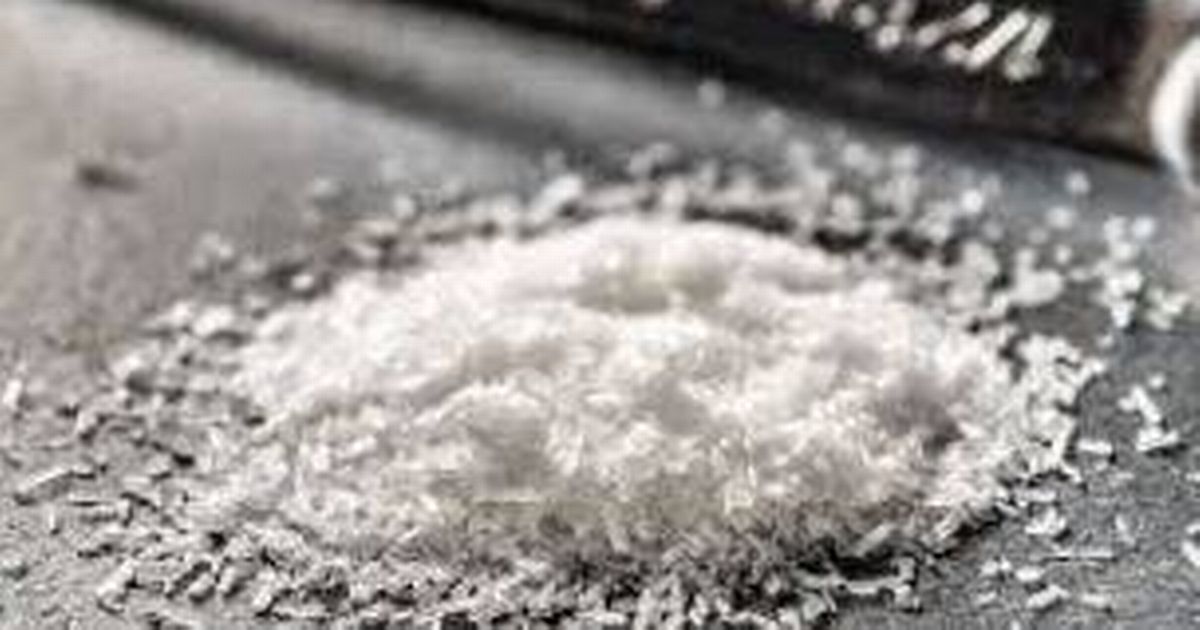Experts have sounded the alarm amid rising usage among young people in Merseyside Liverpool is facing “pandemic” levels of ketamine use leaders have warned(Image: GM Trends)
Liverpool is facing “pandemic” levels of ketamine use leaders have warned(Image: GM Trends)
Ketamine is being seen as a “rite of passage” for children on Merseyside who are taking it “in their lunch breaks”, according to experts. Rising levels of ketamine use is causing concerns to parents, carers and youth leaders in Merseyside and across the UK. In March, the ECHO spoke to two people working at an addiction clinic, a Liverpool city councillor and a dad whose 15 year-old son is using the drug.
The heartbroken dad told how his son is suffering from his addiction, losing weight and struggling to urinate. He believes there needs to be greater education and awareness of ketamine addiction which Liverpool city councillor Lynnie Hinnigan claimed is reaching pandemic levels.
In response to growing concerns, the LFC Foundation, Marine in the Community, Everton in the Community and Tranmere Rovers in the Community united for a youth football tournament for year seven boys and girls at Marine AFC in Crosby on Friday (May 16).
It saw the launch of a new initiative which will continue over the coming months focused on how ketamine can destroy lives and cause serious health issues.
Merseyside’s police and crime commissioner Emily Spurrell, staff from the clubs’ foundations, representatives from Crimestoppers, recovering addicts and former Liverpool players attended. The football was interspersed by short sessions on the serious health implications of using ketamine and the devastating effects that it can have on young people and their families.
 Merseyside’s police and crime commissioner Emily Spurrell(Image: Supplied)
Merseyside’s police and crime commissioner Emily Spurrell(Image: Supplied)
Mark O’Hagan, 55, headteacher of Sacred Heart Catholic Academy in Crosby, was also at the event. He told the ECHO that, in his experience, some young people are not aware of how dangerous ketamine is.
He said: “In terms of drugs, obviously we have safeguarding with pastoral teams and we’re speaking to parents all the time. We have really noticed over the last few years, not so much the amount of drug use changing, but definitely a change in the drugs being used.
“Six or seven years ago, we didn’t really know what ketamine was. Now, it’s in the common language of the children and for lots of children they do, unfortunately, see this as almost like a rite of passage. It’s seen as just a normal thing to do, to engage in this risk taking behaviour.
“It gets into the mindset of the children – they think, it mustn’t be that dangerous because I know person A, I know person B, that takes it.
“As soon as there’s that frequency of use in the children’s minds, it’s going to reduce their perception of the risk of it. That’s why giving them the most accurate information on the risks of these drugs is so important.
 Mark OHagan, headteacher of Sacred Heart Catholic Academy in Crosby(Image: Supplied)
Mark OHagan, headteacher of Sacred Heart Catholic Academy in Crosby(Image: Supplied)
“That’s why days like today are so important – to show what the actual risks are. It’s about engagement. If you do something different, you do something exciting and especially with things like this, it is something that pupils really enjoy, people get engaged.”
The number of ketamine users in the UK has doubled in the last five years and border officials reported record seizures last year. Liverpool is the UK’s ketamine hotspot for seizures of the drug, with busts on Merseyside more than five times the national average.
Users say it makes them feel detached, dream-like and invincible. However, it can cause nausea and hallucinations – and chronic use can lead to bladder problems (known as ‘ket bladder’) which is so severe the organ has to be removed.
Merseyside’s police and crime commissioner Emily Spurrell said public bodies across the area are aware of how serious the issue is. She said: “The reports I get back from our partners across the local authorities – they are telling me that they are all seeing an increase in the numbers of young people using it.
“It’s quite cheap. I think it’s quite accessible. So I understand young people are starting to try it. What I think young people aren’t necessarily aware of is just how dangerous it is and the long-term health impacts it has, so we are seeing a worrying rise of young people with urinary tract infections and displaying all kinds of significant health issues.”
The commissioner is supportive of Merseyside’s Police approach to the issue. She said: “I think there’s quite a lot of understanding. I think the police are being quite proactive in this space and particularly to those individuals who are looking to peddle and sell the drugs to young people.
“We know there are people out there who are heartless, selfless individuals who are preying on vulnerable young people and selling them these drugs and who don’t care about what the results are.
“But, as with all drugs, there is work to be done to make sure we understand who’s producing it, where it’s coming to the country, how it is then being distributed, and that’s the work the police are doing with partners like public health.
“There’ll be lots of local support for people struggling with the drug depending on where they live. Our public health teams will be putting lots of information out. We’ve obviously got national organisations like Talk to Frank who are really involved.
“I think there is always a challenge with the drugs market changing and policing being able to respond rapidly to that. Obviously some of this is in relation to international issues and crises that are happening abroad, so it can be very difficult sometimes to know exactly what’s going to happen, but I think the police do a lot of work to really understand what’s going on.”
Before the event, the ECHO spoke to Dr Verity Sullivan, a consultant Physician Sexual Health and HIV at Axess Sexual Health, part of the University Hospitals of Liverpool Group.
Dr Sullivan, 40, said increasing numbers of young people are coming to clinics thinking they have symptoms of a sexually transmitted infection (STI) when in fact it is due to their ketamine usage. These people are then referred to urology for further treatment.
She said: “What we’ve been seeing increasingly, particularly over the last year or two, are larger numbers of young people coming in with pain on peeing, or they might come in with needing to pee more than usual. Some people see blood in the urine and some people just find chronic lower abdominal or pelvic pain.
“Obviously they’re all symptoms that can be caused by STIs. We do routinely ask about drug and alcohol use, particularly for under eighteens because we’ve got a duty of care in terms of safeguarding.
“It’s only then that people sometimes say, yeah, I use a bit of ket now and again. It’s when you start to drill down into that, that you realise that their ketamine use is pretty regular. Local schools have reported that teenagers are regularly using ketamine in their lunch breaks. It’s absolutely terrifying.”
Dr Sullivan believes greater awareness about the dangers of the drug is also vital to tackle the issue. She said: “From what I can gather, people know that if you use ketamine, maybe you might use a bit too much and you might have the immediate effects.
“I think not many people seem to know about ketamine bladder at all. When we say to them, your ketamine use could be linked to your symptoms, they’re surprised and they’re shocked. If young people knew a bit more about the side effects, it might put them off.”
